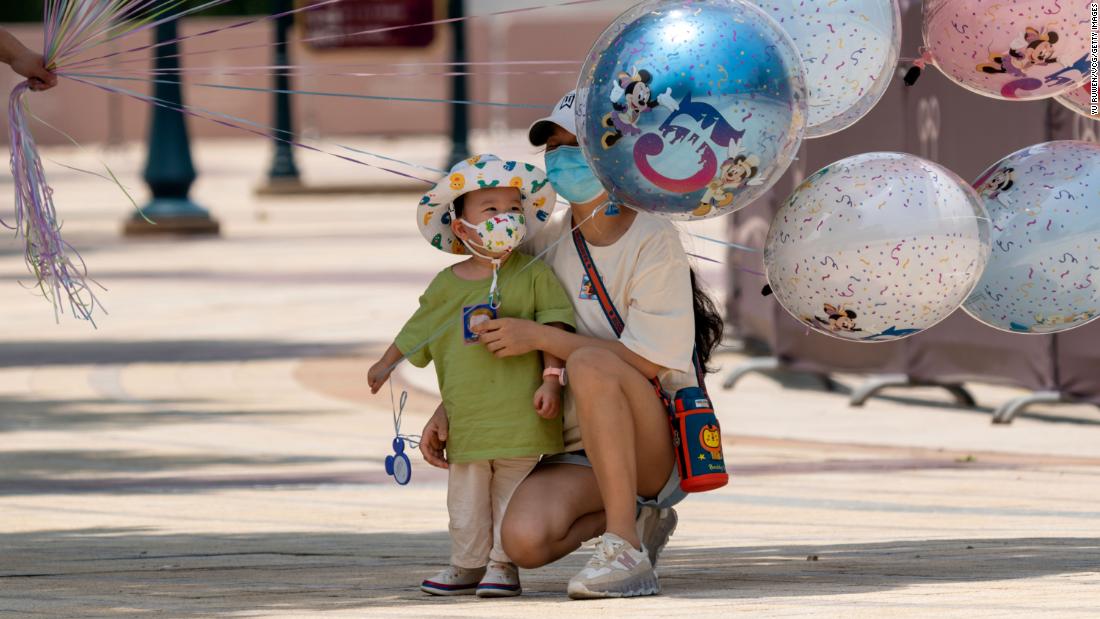
Shanghai Disney Resort said Tuesday the park would resume operations “with limited daily capacity and enhanced health and safety protocols” in line with Chinese government regulations.
“During the initial reopening phase, the majority of Shanghai Disneyland’s exciting attractions, rides, shows and shopping and dining locations will resume operations with controlled capacity,” it added in the statement.
Shanghai Disney Resort reopened some retail and park areas earlier this month, resuming operations at Disneytown, Wishing Star Park and Shanghai Disneyland Hotel. But the main theme park remained closed.
Shanghai is also gradually resuming dine-in services at restaurants starting Wednesday. Patrons will need to present a negative PCR test taken within 72 hours, and dine-in time will be capped at 90 minutes, according to Shanghai Commerce Commission inspector Lai Xiaoyi.
On Tuesday, the National Health Commission said China will slash the quarantine period for international travelers by more than half, requiring them to spend seven days in a centralized government quarantine facility, plus an additional three days at home.
Previously, the quarantine requirements were at least 14 days in a government facility and seven days in home quarantine.
The shift marks the first time China has cut quarantine on a national level since the start of the pandemic.
“The first easing in international travel restrictions in more than two years marks a big shift in China’s Covid doctrine, increasing our conviction of an exit from Covid zero by the turn of the year,” Morgan Stanley analysts said in a report on Tuesday.
“While it’s one small step for Covid relaxation, it’s one big leap for confidence in the direction of the Covid pathway,” they added.
“Overall, the Chinese government is starting to make a balance between supporting growth and suppressing the virus spread after the strict lockdown in Shanghai,” said Ken Cheung, chief Asian foreign exchange strategist for Mizuho Bank.
Meanwhile, “residents still risk being put under the lockdown suddenly and mass testing repeatedly,” he added.
— CNN’s Beijing Bureau, Yong Xiong, and Jorge Engels in London contributed to the report.

